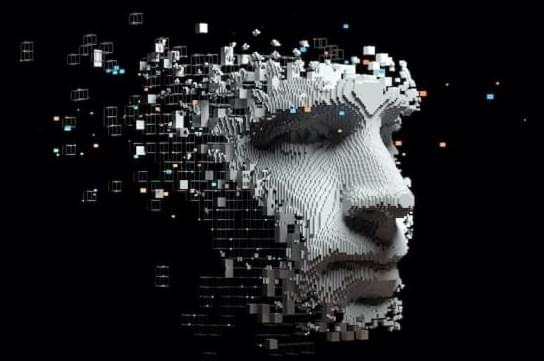
Get the latest international news and world events from around the world.


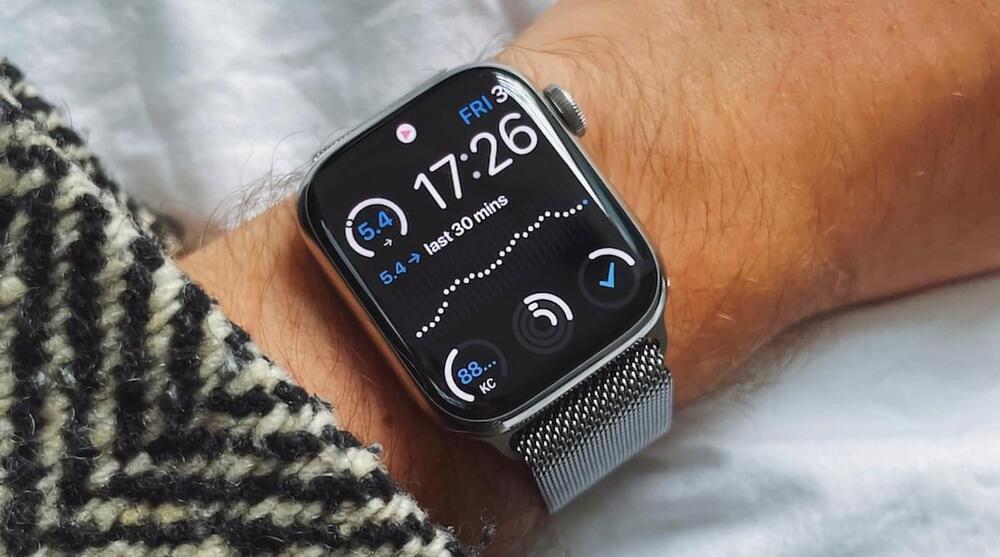
Homebrew project adds continuous glucose monitoring to the Apple Watch
An Apple Watch owner has created a complication and watchOS app that works with a glucose monitor, so they can keep track of their blood glucose level from their wrist.
Numerous rumors have claimed Apple is actively working on some form of glucose monitoring sensor for the Apple Watch, but has so far yet to add it to the wearable device. In the case of one Apple Watch owner, they managed to hack together their own solution.
The project, outlined by Harley Turan, effectively takes the data from a continuous glucose monitoring system and imports and interprets it in a way that it can be viewed on an Apple Watch. In doing so, the project creates a reasonably low-cost solution for the problem.
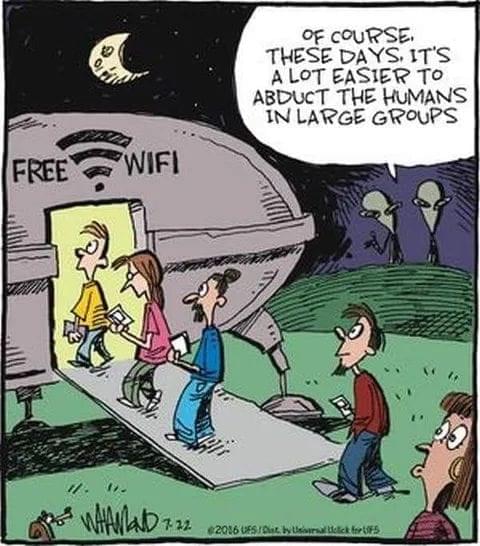
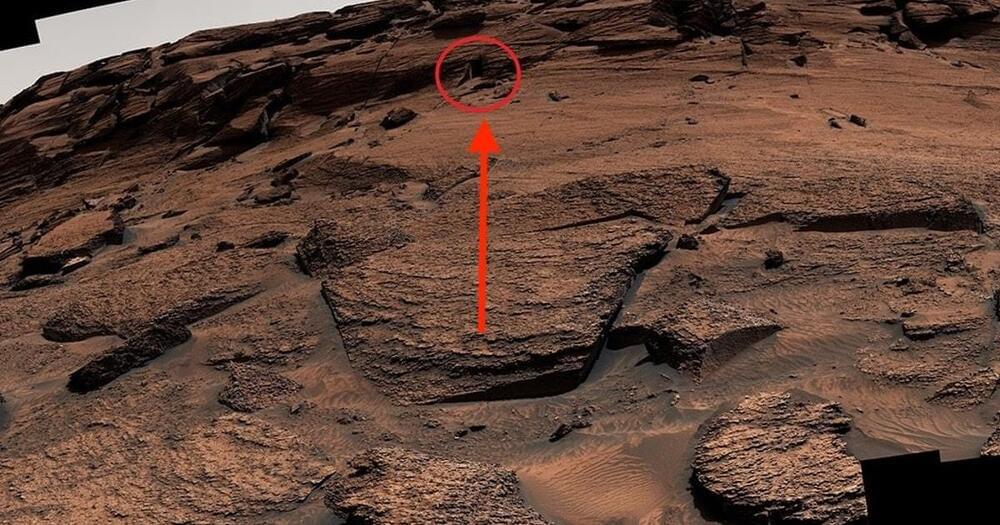
“Door” on Mars? A planetary scientist explains what you really see
For all the fuss it caused, it is only about a foot high.
The “door” was imaged by NASA’s Curiosity rover on May 7 on the slopes of Mount Sharp, the central massif within Gale crater, where it landed in 2012. Described on one website as a “pharaonic tomb door” because of its resemblance to some ancient Egyptian remains, it is, in fact, only about one foot high.
It is hard to spot on the panoramic image mosaic of the hillside above, but it leaps out at the eye if you see the individual frame where it occurs, as seen below. It does look like a doorway until you realize how small it is. And if you boost the contrast in the dark parts of the image, the picture just about reveals a solid rock face at the back of the shadowed interior. So as a gateway into the hollow hills of Mars, it doesn’t lead very far.
Nobody with even a little geological experience is likely to mistake the feature as a “door.” A geologist would note the thin and slightly sloping repeated layers of sandstone making up the whole of the rock face and would immediately expect that they were looking at the eroded remains of hardened sand dunes. These once covered the stream and lake sediments that Curiosity examined earlier in its gradual climb up through the layers of sedimentary rock making up Mount Sharp.
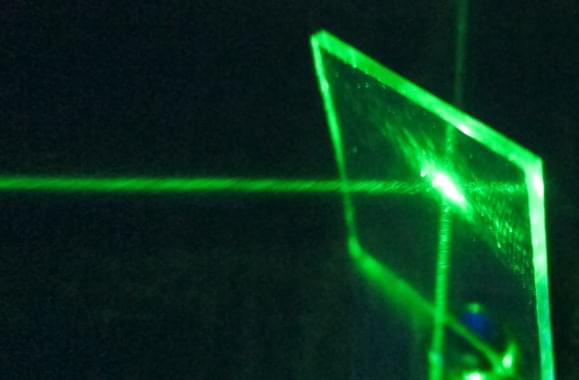
Manipulating photons for microseconds tops 9,000 years on a supercomputer
Ars Technica’s Chris Lee has spent a good portion of his adult life playing with lasers, so he’s a big fan of photon-based quantum computing. Even as various forms of physical hardware like superconducting wires and trapped ions made progress, it was possible to find him gushing about an optical quantum computer put together by a Canadian startup called Xanadu. But, in the year since Xanadu described its hardware, companies using that other technology continued to make progress by cutting down error rates, exploring new technologies, and upping the qubit count.
But the advantage of optical quantum computing didn’t go away, and now Xanadu is back with a reminder that it still hasn’t gone away. Thanks to some tweaks to the design it described a year ago, Xanadu is now able to sometimes perform operations with more than 200 qubits. And it has shown that simulating the behavior of just one of those operations on a supercomputer would take 9,000 years, while its optical quantum computer can do them in just a few-dozen milliseconds.
This is an entirely contrived benchmark: Just as Google’s quantum computer did, the quantum computer is just being itself while the supercomputer is trying to simulate it. The news here is more about the potential of Xanadu’s hardware to scale.
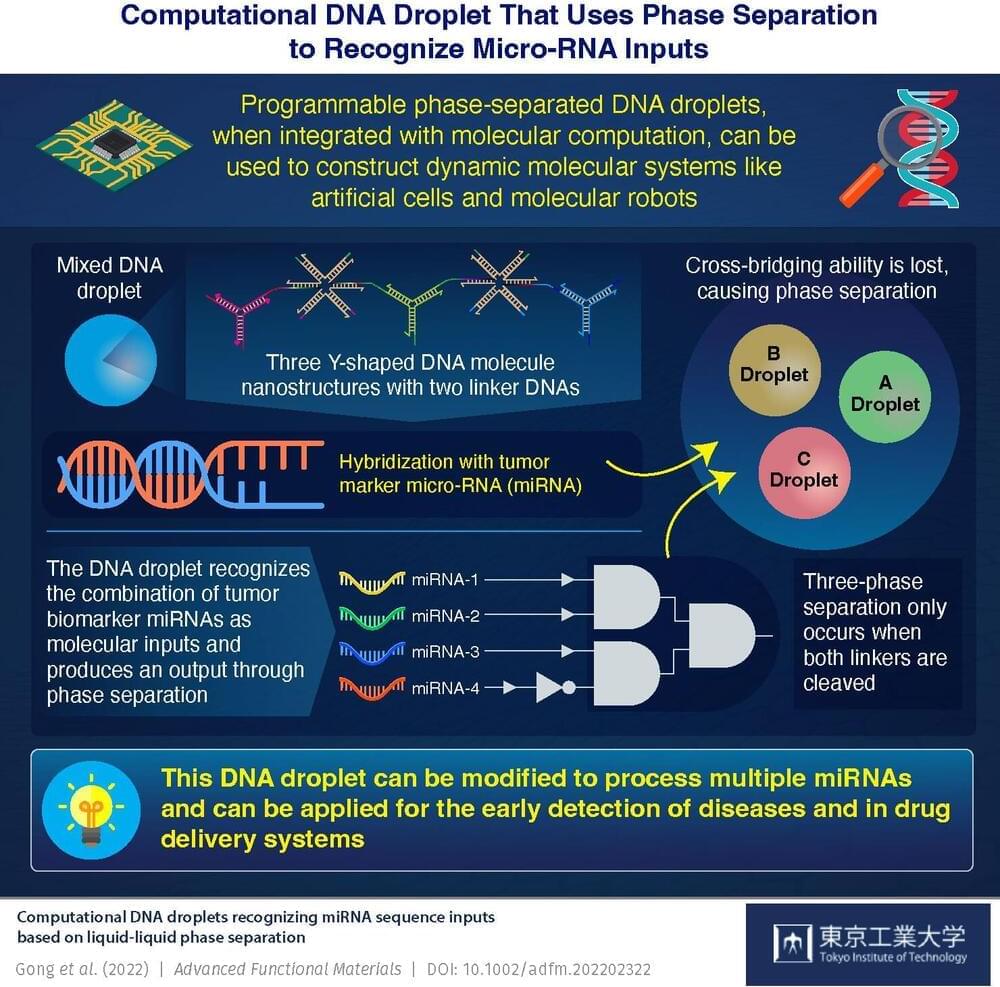
Novel method for early disease detection using DNA droplets
Aqueous droplet formation by liquid-liquid phase separation (or coacervation) in macromolecules is a hot topic in life sciences research. Of these various macromolecules that form droplets, DNA is quite interesting because it is predictable and programmable, which are qualities useful in nanotechnology. Recently, the programmability of DNA was used to construct and regulate DNA droplets formed by coacervation of sequence designed DNAs.
A group of scientists at Tokyo University of Technology (Tokyo Tech) led by Prof. Masahiro Takinoue has developed a computational DNA droplet with the ability to recognize specific combinations of chemically synthesized microRNAs (miRNAs) that act as biomarkers of tumors. Using these miRNAs as molecular input, the droplets can give a DNA logic computing output through physical DNA droplet phase separation. Prof. Takinoue explains the need for such studies, “The applications of DNA droplets have been reported in cell-inspired microcompartments. Even though biological systems regulate their functions by combining biosensing with molecular logical computation, no literature is available on integration of DNA droplet with molecular computing.” Their findings were published in Advanced Functional Materials.
Developing this DNA droplet required a series of experiments. First, they designed three types of Y-shaped DNA nanostructures called Y-motifs A, B, and C with 3 sticky ends to make A, B, and C DNA droplets. Typically, similar droplets band together automatically while to join dissimilar droplets a special “linker” molecule is required. So, they used linker molecules to join the A droplet with the B and C droplets; these linker molecules were called AB and AC linkers, respectively.
Genetic paparazzi are right around the corner, and courts aren’t ready to confront the legal quagmire of DNA theft
Both Macron and Madonna have expressed concerns about genetic privacy. As DNA collection and sequencing becomes increasingly commonplace, what may seem paranoid may instead be prescient.
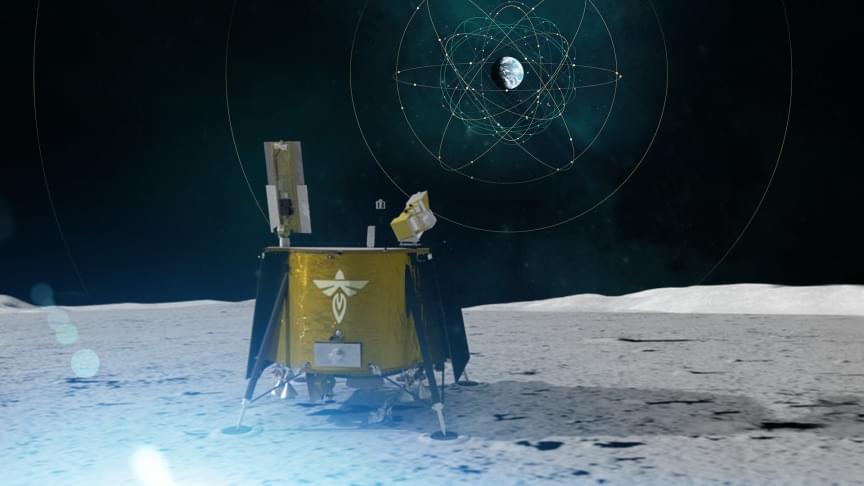
NASA will destroy a GPS navigation record with its upcoming moon mission
GPS might rely on satellites to function on Earth, but its use in space is a little trickier.
NASA is preparing to test a new lunar navigation system that will connect to the Earth’s Global Navigation Satellite System (GNSS) from the moon, a report from the space agency explains.
The unprecedented mission will break a record for the most distant connection to GPS at roughly 238,000 miles from Earth’s surface. It will be delivered to the moon for testing by Firefly Aerospace’s Blue Ghost lander no earlier than 2024, NASA says.
